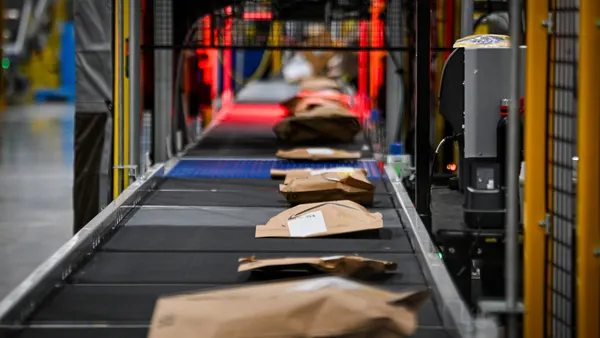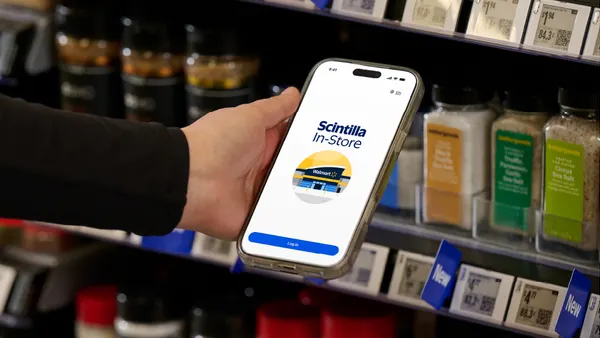Dive Brief:
-
Jewelry brand Kendra Scott has introduced a virtual try-on tool using augmented reality to enable consumers to test items remotely, according to an announcement emailed to Retail Dive.
-
Using their iPhone's Safari web browser, visitors to the jewelry brand's website can use AR to preview products based on their size, look in dynamic lighting and move, per the brand's emailed statement.
-
The brand began with earrings, which "allows for the most dynamic movement," initially and will add necklaces, bracelets, rings and other items in the future, the company said.
Dive Insight:
The company said consumers' desire for an omnichannel experience and pursuit of convenient shopping experiences influenced its decision to introduce the feature.
The jewelry brand joins a growing group of companies — including Wayfair, Perfect Corp. and Ikea — that have rolled out augmented reality technology for customers. Now that the coronavirus outbreak has kept consumers indoors, Kendra Scott is the latest brand to integrate augmented reality into its platform. L'Oréal also recently unveiled beauty AR lenses on Snap's desktop app.
During the COVID-19 pandemic, retailers have tapped into virtual communities to engage with consumers online. David's Bridal also unveiled virtual stylists and appointments to service brides during the pandemic, and Build-A-Bear rolled out online activities to keep children and families entertained while they're at home.
It's no question that the coronavirus pandemic has disrupted all retailers in some way, but the luxury brands have been hit particularly hard. Neiman Marcus, for example, missed a bond payment in mid-April and has had to furlough workers.
As retailers large and small shift to e-commerce and delivery, it's not clear whether e-commerce will make up for the lost in-store revenue. In March, Wedbush and Morgan Stanley analysts said they don't expect online shopping to make up for brick-and-mortar sales declines. At this point in the crisis, it's clear that apparel and accessories retailers are especially vulnerable.














